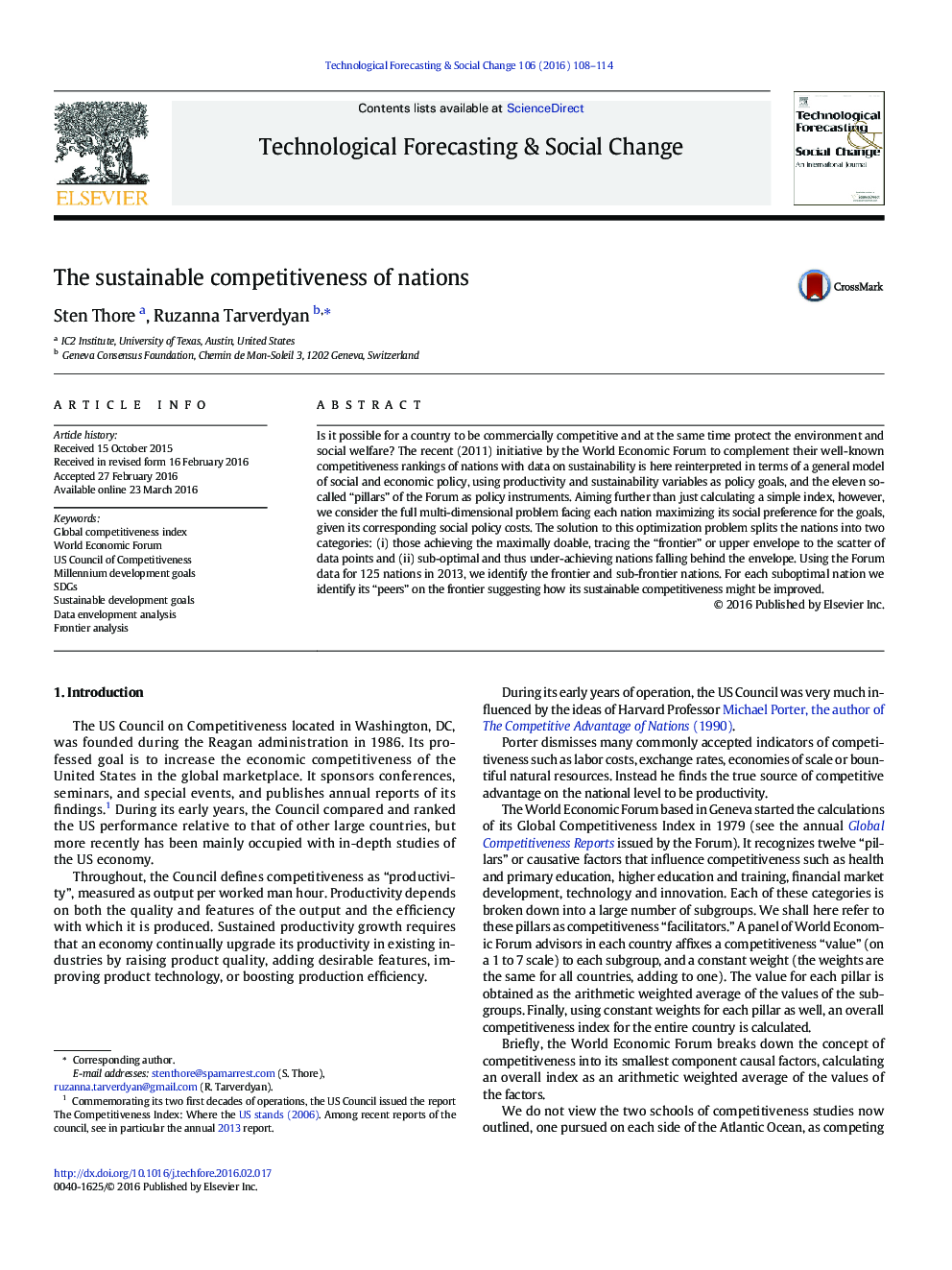| کد مقاله | کد نشریه | سال انتشار | مقاله انگلیسی | نسخه تمام متن |
|---|---|---|---|---|
| 896371 | 1472394 | 2016 | 7 صفحه PDF | دانلود رایگان |
• Comparisons of advantage of frontier methods with a conventional fixed-weight index
• Measurement of the success/failures of nations in reaching a set of policy goals
• Recalculation of the sustainable competitiveness index of the World Economic Forum
• Demonstration that envelope nations are not necessarily the masters of the world.
• Projection of a sub-envelope nation onto the frontier with the potential for improvements
Is it possible for a country to be commercially competitive and at the same time protect the environment and social welfare? The recent (2011) initiative by the World Economic Forum to complement their well-known competitiveness rankings of nations with data on sustainability is here reinterpreted in terms of a general model of social and economic policy, using productivity and sustainability variables as policy goals, and the eleven so-called “pillars” of the Forum as policy instruments. Aiming further than just calculating a simple index, however, we consider the full multi-dimensional problem facing each nation maximizing its social preference for the goals, given its corresponding social policy costs. The solution to this optimization problem splits the nations into two categories: (i) those achieving the maximally doable, tracing the “frontier” or upper envelope to the scatter of data points and (ii) sub-optimal and thus under-achieving nations falling behind the envelope. Using the Forum data for 125 nations in 2013, we identify the frontier and sub-frontier nations. For each suboptimal nation we identify its “peers” on the frontier suggesting how its sustainable competitiveness might be improved.
Journal: Technological Forecasting and Social Change - Volume 106, May 2016, Pages 108–114
